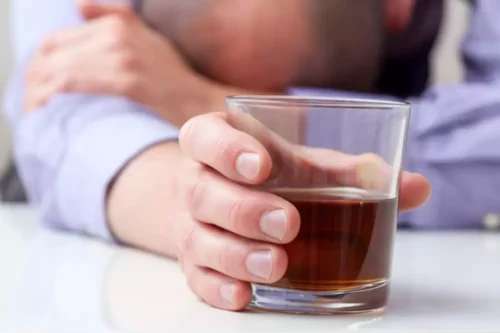
Someone with epilepsy should not drink alcohol without first discussing the potential risks with a doctor who is familiar with their specific condition. Family dynamics can play a pivotal role in both the development of and recovery from AUD. Family therapy sessions bring together spouses, siblings, parents and other close relatives to address dysfunctional patterns and improve communication skills.
Causes of Alcohol Withdrawal Seizures
A 3-week randomized flexible-dose pilot study was completed comparing zonisamide with diazepam for the treatment of AWS in 40 alcohol-dependent subjects 60. Zonisamide was started at a dose range Halfway house of 400–600 mg/day and tapered over the remaining 3 weeks to 100–300 mg/day. AWS decreased significantly in both the zonisamide and diazepam groups with a more marked reduction in the zonisamide group. However, the zonisamide group received more symptom-triggered diazepam for rescue of breakthrough symptoms, a potential confound. At endpoint, the zonisamide group had lower CIWA-Ar, craving, and anxiety scores than the diazepam group.
timing & potential components of withdrawal
After completing treatment for alcohol withdrawal and overcoming the immediate seizure risk, those in recovery must tackle the root cause of their alcohol abuse. Drugs such as Valium can prevent generalized seizures, alongside generic symptoms of withdrawal like anxiety, insomnia, and other risk factors such as high blood pressure. Prescribing a benzodiazepine for alcohol withdrawal is a popular treatment for those at risk of focal seizures, and helps many people pass their detox comfortably. They’ve discovered that people who undergo multiple relapses are more likely to need medical treatment during detox, and are more a risk of severe symptoms such as seizures. While alcohol withdrawal seizures can be one-off events, they can also manifest as part of a life-threatening condition known as Delerium Tremens (DT) 8.

Delerium Tremens & Seizures: Alcohol Withdrawal At Its Worst
Research has indicated that the severity of the symptoms of alcohol withdrawal progressively increases over years of alcohol abuse. Repeated detoxes and relapses increase the likelihood of alcohol withdrawal seizures. This is known as the “kindling effect.” The kindling theory is that every withdrawal incident acts as an irritation to the brain. The accumulation of several of these incidents tends to lower the intensity needed for seizures. There are no well-documented cases where an alcohol seizure was established as the cause of death in a person with a history of long-term alcohol abuse.
- While you’re in inpatient treatment, you may also be treated with IV fluid, which can help keep you hydrated through the withdrawal process.
- Behavioral therapies such as cognitive-behavioral therapy (CBT) and dialectical behavior therapy (DBT) are effective in helping people understand how their harmful thinking patterns are harming their lives.
- With the right support and a focus on self-care, you can build a safer, better life in recovery.
- Therapeutic approaches provide strategies to cope with cravings, develop healthier habits, and tackle underlying issues contributing to heavy alcohol use.
- There were no significant differences in AWS symptoms by medication; however, those in the gabapentin group reported decreased daytime sleepiness compared with those who received chlordiazepoxide.
Rehab Resources

Kindling is caused by the chronic use of drugs that cause GABA receptors’ downregulation. Chronic depressant use and withdrawal can cause hypersensitivity in your nervous system. It’s worth noting that opioids share many similarities with depressants, but they don’t work with GABA in the brain as alcohol does.
Seizures are relatively common during alcohol withdrawal, affecting about 5-10% of people who stop drinking after heavy use. Those most at alcohol detox seizures risk include individuals with a history of alcohol seizures, repeated withdrawal episodes, or pre-existing health conditions like epilepsy or brain injuries. Alcohol withdrawal seizures can occur within 8 to 24 hours after heavy drinking is stopped. These seizures are typically generalized and may happen as a single seizure or in clusters over several hours. Sudden cessation of alcohol, especially after prolonged use, increases the risk of seizures from alcohol withdrawal.
They can emerge suddenly and do pose a danger to life, so they should be taken seriously. As an essential first step in treating alcohol addiction, it is a very positive and important process to undergo. However, it can bring about unpleasant and even dangerous side effects, which is why it must be done in a safe and informed way.

Online Therapy Can Help
The longer someone has been drinking, the more concrete the adaptations to their brain and nervous system have become, and the more likely they are to experience a “rebound effect” during detox and inpatient treatment. Deciding to stop drinking is a cause for celebration, but for many people entering recovery, even mild symptoms can cut the joy they felt at making this choice short. You might be wondering if you can suffer from an alcohol-induced seizure after a typical Saturday night out.
Leave a Reply